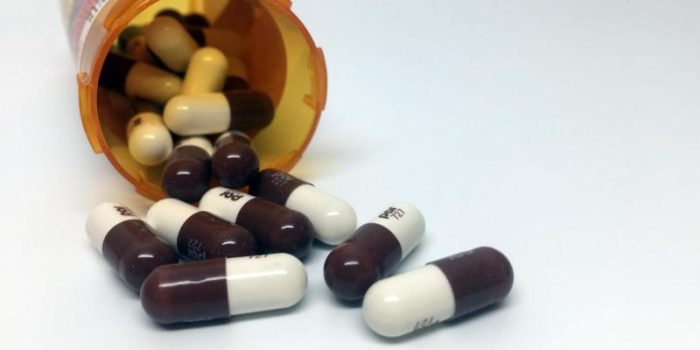An online survey conducted in the Netherlands suggests that informal use of doxycycline post-exposure and pre-exposure prophylaxis (doxyPEP/PrEP) to prevent sexually transmitted infections (STIs) is rising despite a lack of formal guidance, raising concerns about overuse and misuse.
In the survey of 1,633 men who have sex with men (MSM), transgender, and gender-diverse people in the Netherlands, 22.5% reported that they had ever used doxyPEP/PrEP, and 15% reported using it recently, even though it is not currently recommended or actively promoted by the country’s healthcare providers. An additional 65% of respondents said they intend to use doxyPEP/PrEP if it becomes formally available.
An analysis of the survey, developed by researchers with the Public Health Service of Amsterdam and conducted from February 26 to May 4, 2024, was published last week in Eurosurveillance.
Limited formal guidance
To date, several randomized controlled trials have shown that doxyPEP, which involves taking a dose of doxycycline following unprotected sex, is highly effective at preventing syphilis and chlamydia and moderately effective at preventing gonorrhea in high-risk individuals such as MSM and transgender women.
A smaller pilot study found that doxyPrEP may also reduce incidence of STIs in MSM. With STI rates continuing to rise around the world, public health officials have been cautiously optimistic that doxyPEP/PrEP might be an effective reduction strategy.
But Australia, Germany, and the United States are the only countries that currently have guidelines for prescribing doxyPEP. In January 2025, health officials in the Netherlands published a statement saying doxyPEp/PrEP was not recommended.
Among the concerns about prescribing doxyPEP/PrEP for sexually active people is that it could substantially increase antibiotic consumption and promote antimicrobial resistance (AMR). Long-term or frequent use of doxycycline (a broad-spectrum antibiotic) could also alter the gut microbiome in ways that negatively impact health.
In a study published earlier this year, researchers in Seattle, which was an early adopter of doxyPEP, reported increasing tetracycline resistance genes in Neisseria gonorrhoeae bacteria samples from doxyPEP users. They also found elevated resistance in off-target bacteria, including Staphylococcus aureus.
“This poses risks not just for individual patients but also for population-level antibiotic effectiveness, including in future treatment of respiratory, urinary, and skin infections, and warrants robust monitoring and surveillance,” researchers from St. James Hospital and Trinity College in Dublin wrote in an editorial that accompanies the survey.
Use has grown since 2021 survey
To assess informal use of doxyPEP/PrEP in the Netherlands, the researchers recruited participants through advertisements at Amsterdam’s Centre for Sexual Health of the Public Health Service and through online ads. Participants were asked whether they had heard of doxyPEP/PrEP, if they had used it in the 6 months before the survey, about their usage patterns, and about their intention to use it and pay for it should it become formally available.
The proportion of survey respondents who reported use of doxyPEP/PrEP was significantly higher than reported in a 2021 survey of MSM in the Netherlands, which found that only 2.5% of participants had ever used it.
“This suggests a rapidly growing uptake of informal use of doxyPEP/PrEP in the Netherlands,” the study authors wrote.
Participants who reported recent doxyPEP/PrEP use were more likely to have HIV or to have used HIV PrEP in the prior 6 months, have a history of STIs, report a higher number of sexual partners, and engage in group sex than those who had not used doxyPEP/PrEP. Prevalence of use was also higher among participants who perceived doxyPEP/PrEP as safe and those had received advice from peers to use it. Reasons for intention to use doxyPEP/PrEP included protection against STIs, protection of sex partners, and wanting to engage in condomless sex.
The survey also showed that 29% of respondents with recent doxyPEP/PrEP use reported using it specifically as doxyPrEP, which isn’t recommend by any clinical guidelines. In addition, nearly 1 in 4 reported using antibiotics other than doxycycline, including azithromycin, ciprofloxacin, and amoxicillin—none of which have been assessed for preventing STIs. The antibiotics were primarily obtained from countries outside of the Netherlands or through prescriptions for other indications.
Guidelines, monitoring needed
The study authors say the findings of the survey highlight the need for guidelines on doxyPEP/PrEP use and development of systems that can monitor guideline uptake and AMR.
“Lack of monitoring and regulation of doxyPEP/PrEP makes it difficult to detect overuse, misuse and adverse effects including AMR development and effects on microbiome composition,” they wrote.
The authors of the editorial say the findings indicate that despite the lack of formal guidance, self-sourcing of doxyPEP/PrEP is already occurring and will likely continue to rise, independent of formal policy. They also note that the survey offers important insight into user motivations, knowledge gaps, and the influence of community and peer networks in shaping health behaviors.
“The high intention to use doxyPEP in this study is shaped by peer influence, community discussion, and the presence of trusted resources,” they wrote. “This is an important reminder that accurate, culturally relevant messaging co-developed by community and healthcare/public health professionals can support people in making safer and more informed decisions, regardless of whether national guidelines are in place.”













